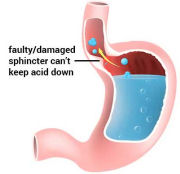|
Holy crap, I think I actually made cartoon pop-out googly eyes at that. Very, very impressive! No laser here, but I do have a CNC router table, and I know just how hard it can be to get friction fit slots dialed in on not-ridiculously-small material. To have pulled it off at that scale is definitely something to be proud of.
|
|
|
|

|
| # ¿ May 3, 2024 19:33 |
|
Maybe a week too late, but - I use 100% isopropyl to clean fingerprints and adhesive residue off my acrylic and polycarbonate pieces. Acetone, on the other hand, will have an immediate softening/clouding effect on both. Alcohol is, to the best of my (admittedly amateur) knowledge, safe to use of virtually any common plastics. In general, it's somewhat easy to differentiate between acrylic and polycarbonate solely by physical properties. Acrylic will scratch like glass and is quite stiff, even if it's a thin sheet. It will also shatter into sharp shards when impacted or broken. Polycarbonate tends to be softer and more flexible, and when you try to scratch it with something you usually see more of a soft surface deformity rather than a hard scratch. If you whack it with a hammer, you're likely to just dent it and then hurt yourself when the hammer bounces back at you.
|
|
|
|
Dirk the Average posted:Interesting. The lab I work with forbids the use of IPA on acrylic because of some really bad crazing damage done to clear acrylic pieces. It could be a surface finish thing maybe? Not sure, but we want our stuff to be optically clear, so any crazing is a big issue. It may be something in the surface finish, or maybe the particular formulation of acrylic? The stuff folks usually run through a CNC or laser cutter is a cast sheet, and doesn't have any special properties other than being really easy to machine. I imagine (read: speculating with absolutely no evidence or knowledge to back it up) that something intended to be optically clear in a lab environment is probably manufactured to significantly different standards. I'm really intrigued by this now!
|
|
|




